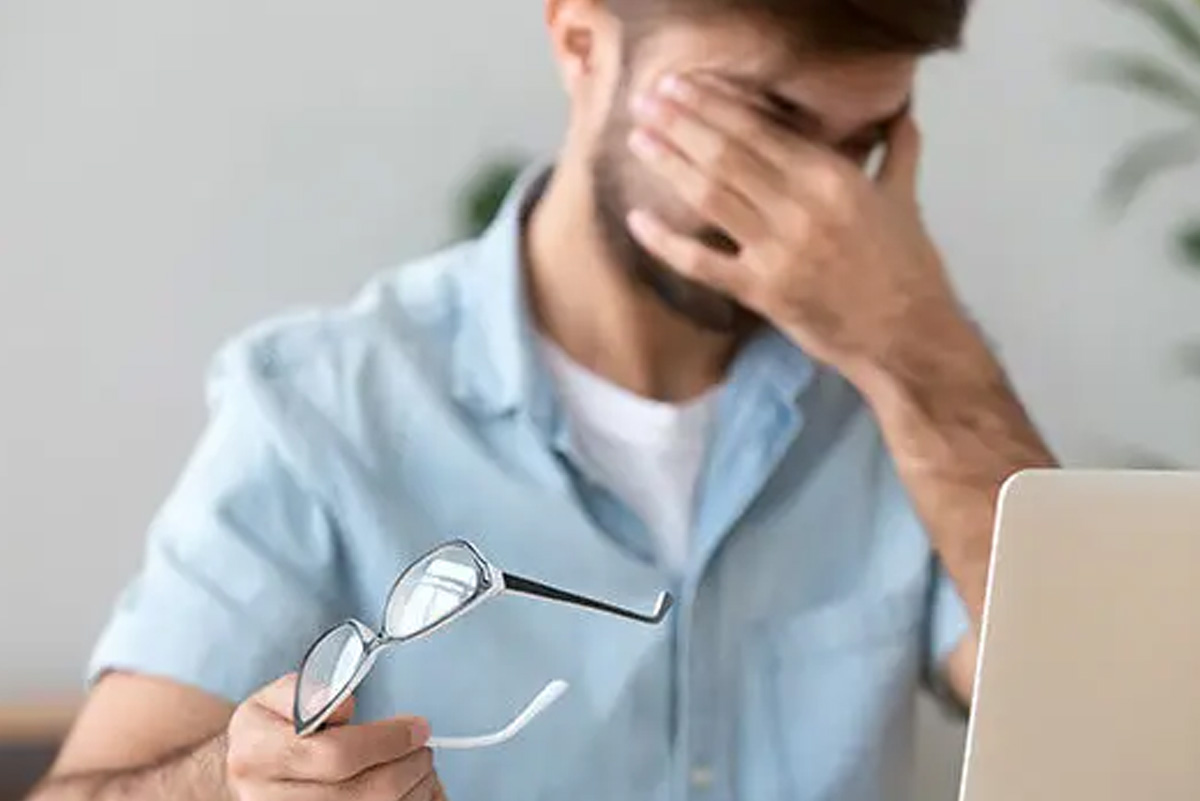Have you ever noticed your vision becoming blurry after eating a meal? If you’ve experienced this, it could be linked to a temporary spike in your blood sugar levels, which affects how your eyes function. While this can happen to anyone, frequent blurry vision after eating may indicate a more significant issue, such as diabetes, that requires attention from an eye doctor.
Here’s what you need to know about blurry vision after eating, how it’s related to your blood sugar levels, and what steps you can take to protect your vision.
How Blood Sugar Affects Vision
When you eat, especially foods high in sugar or carbohydrates, your body processes them, causing your blood sugar levels to rise. In individuals with diabetes, this blood sugar spike may be more extreme, leading to vision problems like blurry eyesight.
This happens because excess glucose in the bloodstream can cause fluid to build up in the eyes, affecting the lens and cornea. The lens, which is responsible for focusing light onto the retina, may struggle to focus properly when it swells. As a result, your vision can become temporarily blurry.
High-sugar foods, such as:
- White rice
- Sugary beverages (sodas, fruit juices)
- Pasta
- Baked goods
- Breakfast cereals
…are particularly prone to causing these spikes in blood sugar.
Other Possible Causes of Blurred Vision After Eating
While blood sugar spikes are a common cause of blurry vision, they aren’t the only culprit. Several other conditions can cause temporary blurred vision, including:
- Carotid Stenosis: Narrowing of the arteries that supply blood to the eyes and brain.
- Migraines: Visual disturbances, including blurry vision, are common symptoms of a migraine.
- Eye Strain: Staring at screens for long periods without taking breaks can also lead to blurry vision.
- Eye Infections: Conditions like pink eye (conjunctivitis) or keratitis can cause blurry vision.
- Glaucoma and Macular Degeneration: These conditions affect long-term eye health and can present with symptoms like blurred vision.
It’s important to observe if blurry vision happens regularly after meals and track whether there is a pattern related to the foods you eat. This information can help your optometrist and other healthcare professionals pinpoint the cause.
How We Can Help You with Blurry Vision After Eating
If you’re experiencing blurry vision after meals, it’s important to schedule an eye exam with an eye doctor. At Eyeson Group, we offer comprehensive eye exams and eye disease management, including diabetic eye care. Our goal is to help you understand and address the root cause of your vision issues, whether it’s related to your diet or an underlying health condition.
If signs of diabetes or diabetic retinopathy are found during your exam, we’ll guide you through the next steps for treatment to protect your vision and overall health.
Schedule Your Eye Exam Today
Don’t wait for blurry vision to become a recurring issue. Call Eyeson Group today to schedule a comprehensive eye exam. We’re here to support your vision health!
